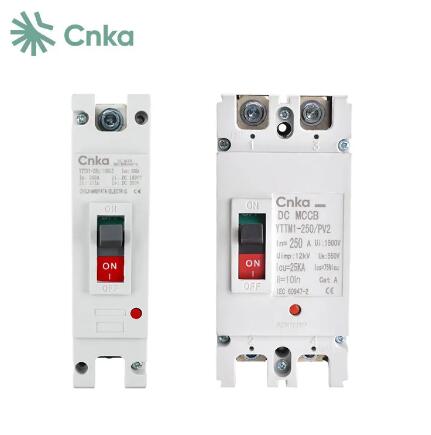Understanding Molded Case Circuit Breaker DC: A Comprehensive Guide
2024-07-19
Introduction
In the world of electrical systems, safety and reliability are paramount. One crucial component that ensures these aspects in both residential and industrial settings is the Molded Case Circuit Breaker (MCCB) DC. This blog will delve into the basics of MCCB DC, its functionality, applications, and advantages.
What is a Molded Case Circuit Breaker (MCCB) DC?
A Molded Case Circuit Breaker (MCCB) DC is a type of electrical protection device designed to protect electrical circuits from overloads and short circuits. Unlike standard MCCBs used for alternating current (AC) systems, MCCB DC is specifically engineered to handle direct current (DC) applications.
Key Components and Functionality
1. Housing: The MCCB DC is enclosed in a molded case, typically made of durable insulating material, which provides protection and structural integrity.
2. Contacts: These are the components that open or close the circuit. In the event of an overload or short circuit, the contacts separate to interrupt the current flow.
3. Trip Mechanism: This mechanism is responsible for detecting fault conditions (overload or short circuit) and triggering the contacts to open.
4. Arc Extinguishers: When the contacts open, an electric arc forms. Arc extinguishers are used to safely dissipate this arc and protect the breaker from damage.
Applications of MCCB DC
1. Renewable Energy Systems: MCCB DC is widely used in solar power installations to protect photovoltaic panels and inverters from electrical faults.
2. Electric Vehicles (EVs): These breakers are crucial in EV charging stations and battery management systems to ensure safe operation.
3. Telecommunications: MCCB DC is employed in telecom infrastructure to safeguard equipment and maintain uninterrupted service.
4. Industrial Automation: In industries with extensive DC power systems, MCCB DC protects machinery and control systems from electrical faults.
Advantages of MCCB DC
1. High Breaking Capacity: MCCB DC is capable of interrupting high levels of fault current, making it suitable for demanding applications.
2. Adjustable Trip Settings: Many MCCB DC units come with adjustable trip settings, allowing for customization based on specific protection needs.
3. Durability: The robust construction and high-quality materials used in MCCB DC ensure long-lasting performance even in harsh environments.
4. Compact Size: Despite their high capacity, MCCB DC units are compact, saving valuable space in electrical panels and installations.
Installation and Maintenance
1. Proper Sizing: Ensure that the MCCB DC is appropriately rated for the specific application to provide optimal protection.
2. Regular Inspections: Conduct periodic inspections to check for signs of wear, overheating, or damage to the breaker.
3. Testing: Perform routine testing of the trip mechanism to ensure it functions correctly under fault conditions.
4. Cleaning: Keep the breaker and its housing clean from dust and debris to prevent any obstruction or malfunction.
Conclusion
Molded Case Circuit Breaker (MCCB) DC is an essential component in modern electrical systems, offering reliable protection against overloads and short circuits. Its applications span across various industries, including renewable energy, electric vehicles, telecommunications, and industrial automation. By understanding the functionality, benefits, and maintenance requirements of MCCB DC, you can ensure the safety and efficiency of your electrical installations.



